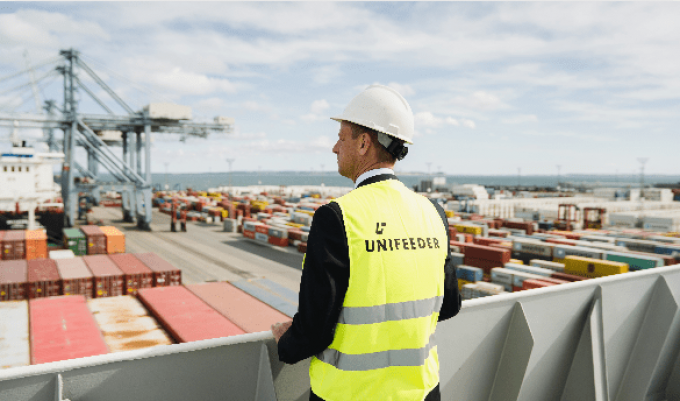Bulgaria service kicks-off new Unimed expansion phase
Next week, eastern Mediterranean and Black Sea feeder operator Unimed Feeder Services will launch a ...

With ocean carrier hub & spoke operations in North Europe set to become more reliant on their services, feeder operators are jockeying for position as the ‘green’ feeder of choice.
Unifeeder said today it had signed a long-term charter agreement for two additional newbuild methanol-capable 1,250 teu vessels for delivery in 2026.
Unifeeder has been encouraged to take up its option on the extra ships following an agreement in October to take the first two on long-term charter from Germany-based ship-owning group ...
Volcanic disruption at Anchorage could hit transpacific airfreight operations
Shippers snap up airfreight capacity to US ahead of tariff deadline
New price hikes may slow ocean spot rate slide – but for how long?
Tighter EU import requirements proving 'a challenge' for forwarders
Looming Trump tariffs will create 'a bureaucratic monster' for Customs
Airfreight demand expected to weaken through Q2
Real test of Gemini hub and spoke model yet to come, says Maersk

Comment on this article